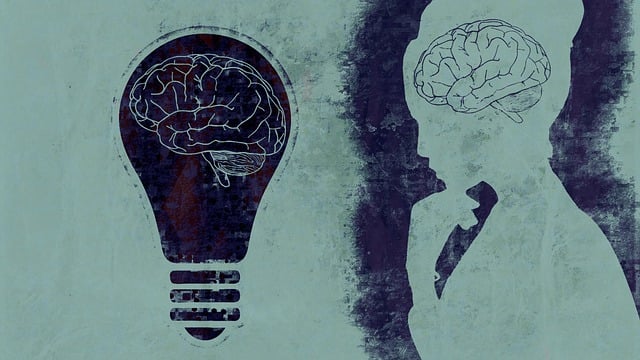Integrating Longmont Cognitive Behavioral Therapy (CBT) into mental health education is a powerful approach for managing stress, anxiety, and related conditions. This evidence-based method focuses on changing negative thought patterns and behaviors through interactive workshops, group discussions, and techniques like cognitive restructuring and behavioral activation. By addressing cultural sensitivity, self-care practices, and building resilience, Longmont CBT programs empower individuals to maintain mental wellness, as demonstrated by their positive impact on self-esteem, stress management, and community mental health literacy.
“Uncovering the power of education in mental health support begins with a comprehensive program design. This article explores a structured approach, from establishing a solid understanding of mental health fundamentals to integrating evidence-based practices like Longmont Cognitive Behavioral Therapy (CBT). We delve into strategies for creating engaging learning experiences, fostering skill development through practice, and implementing evaluation methods to ensure the program’s effectiveness. By following these guidelines, educators can empower individuals with valuable tools for their well-being.”
- Understanding Mental Health: A Foundation for Education
- Integrating Cognitive Behavioral Therapy (CBT) Principles
- Designing Engaging Learning Experiences
- Facilitating Skill Development and Practice
- Evaluating and Measuring Program Effectiveness
Understanding Mental Health: A Foundation for Education

Understanding mental health is a fundamental step in designing effective educational programs. In today’s world, where stress and anxiety are prevalent, equipping individuals with knowledge about their minds and emotions is more crucial than ever. Longmont Cognitive Behavioral Therapy (CBT) serves as an excellent foundation for such education, focusing on identifying and changing negative thought patterns and behaviors. By teaching participants how to manage their mental health proactively, CBT fosters resilience building, enabling them to navigate life’s challenges with greater ease.
A comprehensive mental health education program should also address cultural sensitivity in mental healthcare practice. Recognizing the diverse backgrounds of learners and tailoring strategies accordingly ensures inclusivity. Moreover, integrating self-care practices is vital; encouraging participants to prioritize their well-being empowers them to maintain a healthy mind and serve as a cornerstone for improved mental health outcomes.
Integrating Cognitive Behavioral Therapy (CBT) Principles

In designing a mental health education program, integrating Cognitive Behavioral Therapy (CBT) principles can significantly enhance its effectiveness, especially in fostering long-term mental wellness. CBT focuses on identifying and changing negative thought patterns and behaviors, empowering individuals to take control of their emotional well-being. This evidence-based approach has been extensively studied, particularly in the context of Longmont Cognitive Behavioral Therapy, demonstrating its value in treating various mental health conditions.
The program should incorporate techniques such as cognitive restructuring, where participants learn to challenge and replace distorted thoughts, and behavioral activation, which encourages engaging in activities despite feelings of depression or anxiety. Additionally, including Compassion Cultivation Practices and Resilience Building exercises can complement CBT. These practices promote self-compassion and the ability to navigate challenges, fostering a supportive mindset that enhances the overall mental wellness experience, as evidenced by the popularity of Mental Wellness Podcast Series Production content among those seeking such support.
Designing Engaging Learning Experiences

In designing engaging learning experiences for a mental health education program, it’s essential to incorporate interactive and relatable elements that resonate with participants. Longmont Cognitive Behavioral Therapy (CBT) techniques can serve as a powerful tool within these sessions, fostering active engagement and empowering individuals to take charge of their emotional well-being. By combining theoretical knowledge with practical exercises, facilitators create an immersive environment where learning becomes an experience rather than a lecture.
Incorporating Cultural Competency Training for healthcare providers ensures that the program caters to diverse backgrounds, making it inclusive and impactful. Mind Over Matter principles can be woven into the curriculum to encourage participants to reframe negative thought patterns, ultimately promoting emotional resilience. Additionally, integrating Emotional Well-being Promotion Techniques allows for a holistic approach, teaching valuable coping mechanisms and self-care strategies.
Facilitating Skill Development and Practice

Mental health education programs play a pivotal role in empowering individuals to take charge of their well-being, and Longmont Cognitive Behavioral Therapy (CBT) offers a proven framework for skill development. Through interactive workshops and group discussions, participants learn practical coping skills tailored to managing stress, anxiety, and depression. This evidence-based approach encourages active engagement, fostering an environment where individuals can practice new strategies in a safe space.
The program focuses on self-care routine development as a key component of better mental health. By teaching techniques such as mindfulness, relaxation exercises, and effective stress management, participants gain valuable tools to navigate life’s challenges. Regular practice of these skills allows for positive changes in thought patterns and behaviors, leading to improved resilience and overall mental well-being.
Evaluating and Measuring Program Effectiveness

Evaluating and measuring the effectiveness of a mental health education program, such as Longmont Cognitive Behavioral Therapy (CBT), is a multifaceted process. It involves assessing both the immediate outcomes and the long-term impacts on participants’ well-being. Key metrics include tracking improvements in self-esteem, as CBT targets negative thought patterns that can erode confidence. Similarly, measuring skill acquisition in conflict resolution techniques is crucial, as these are practical tools that empower individuals to manage stress and interpersonal challenges effectively.
Beyond individual benefits, the program’s success should also be gauged by its broader community impact. Effective implementation of a Longmont CBT program could lead to improved mental health literacy and reduced stigma, fostering a more supportive community environment. Community outreach plays a vital role here, as it helps to identify gaps in services and ensures that education reaches diverse populations. Ultimately, evaluating program effectiveness requires a holistic approach that considers both personal growth and societal benefits.
Mental health education programs, such as those incorporating Longmont Cognitive Behavioral Therapy (CBT) principles, are powerful tools for empowering individuals. By understanding mental health as a foundational concept and designing engaging learning experiences, these programs facilitate skill development and practice. Effective evaluation ensures the program’s success in improving overall well-being. This structured approach, guided by CBT techniques, can lead to significant positive changes, making it an essential strategy in today’s mental health landscape.












